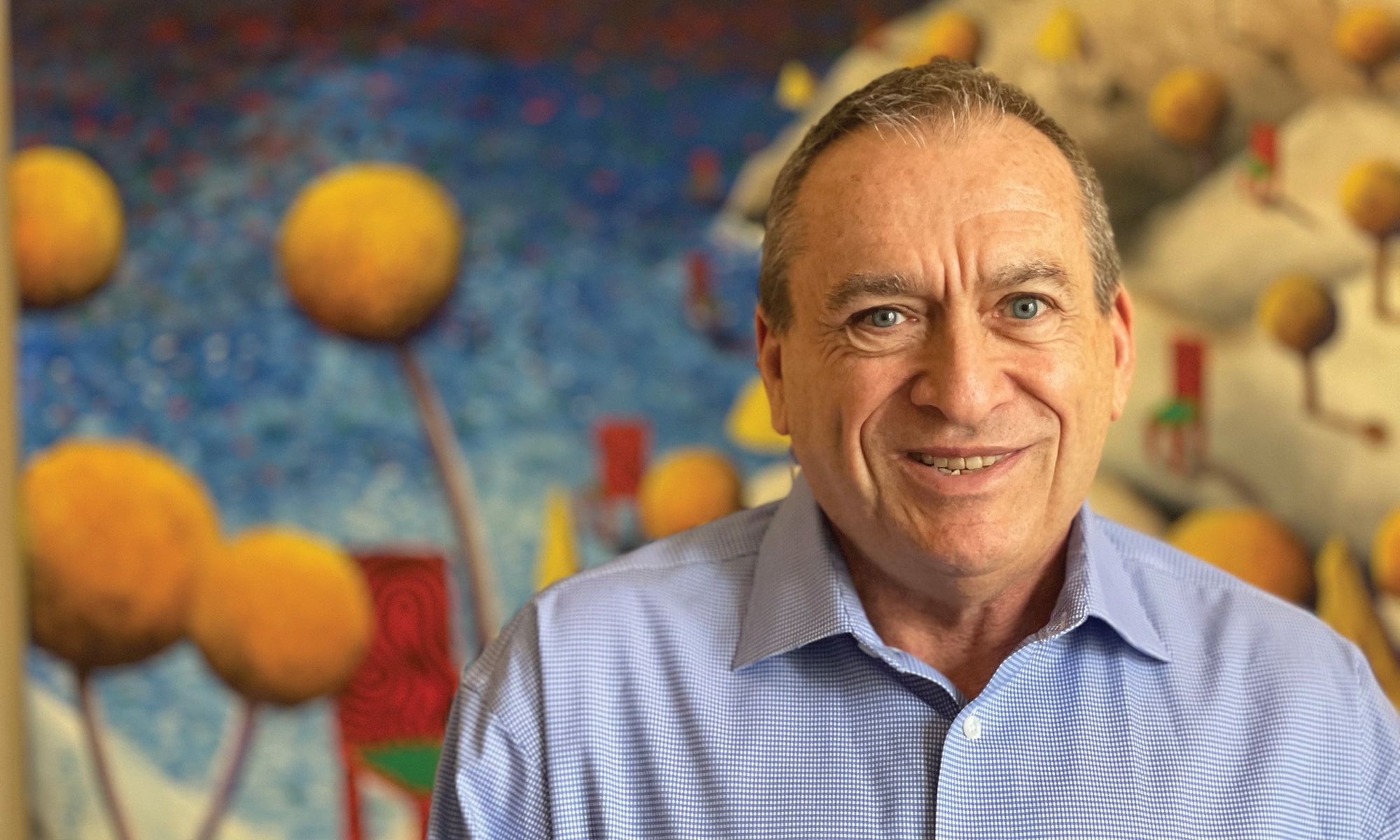Carl Moellenberg’s odyssey from successful investment banker to smash-hit Broadway producer is worthy of its own libretto and score.
Despite the glamorous job titles, Moellenberg ’74 says his life is not about glitz and big money. His bouts with life-threatening illnesses have caused him to reevaluate and discover what is truly worthwhile.
He doesn’t want his epitaph to read “successful investment banker” or “13-time Tony Award-winning producer.”
He wants it to say: “Carl was a good friend.”
“Success to me doesn’t have anything to do with a career,” he says. “It means connecting with people in a really meaningful way, being there, and loving from the heart.”
If Moellenberg’s life were a Broadway musical, he would want theatergoers to feel there is always a way to keep going, regardless of the challenges they’re going through, and to find joy, hope, and happiness in the midst of it all.
The opening of Moellenberg: The Musical would be conventional. Bright young man from Toledo, Ohio, enters Denison University.
But the magic is just beginning.
The curtain opens to Act 1.
Act I: Straight to the top
Moellenberg and his twin brother, Chuck ’74, arrive at Denison, fresh from competing in their local quiz bowl. As math and economics professors feed Moellenberg’s thirsty intellect, he studies classical piano and sings in three choirs. Graduating as co-valedictorian, Moellenberg earns a berth at the University of Chicago’s MBA program. (Harvard makes him an offer as well, but UChicago gives him a full ride.)
After Moellenberg completes his MBA, the Big Apple calls. It’s 1976 and the financial world is roaring, setting the stage for the movie Wall Street, source of the phrase “greed is good” — some would say, the defining theme of the era.
Moellenberg’s career in investment banking might be kismet. Over the next two highly successful decades, he works at some of the industry’s leading institutions, including Chemical Bank, Goldman Sachs, and Morgan Stanley.
But the hours are terrible, and the atmosphere uber-competitive and antagonistic.
He senses something needs to change.
Act II: A national health crisis becomes personal
During those two decades on Wall Street, Moellenberg comes to a realization, and the timing is terrible. “I came out as a gay man right before HIV thrust itself into our world — turning it upside down,” he says.
He is just beginning to date men, and his first HIV test comes back positive.
In the future, treatment for HIV will become commonplace, and those with HIV will be able to live long and productive lives. But in the ’80s, it is a veritable death sentence.
“It was an incredibly scary time,” he recalls. “Friends were getting ill and dying. Nobody knew anything; we didn’t understand what caused it. People were treated as pariahs and even separated from others in the hospitals.”
Moellenberg manages to sustain his career and his health for more than a decade. Increasingly, he finds it hard to keep up with the physical demands. The emergencies multiply, and his T-cells drop to 60, about 10% of what they should be. He contracts AIDS.
By now, medicine has advanced enough that he recovers, yet he faces serious medical complications for the rest of his life. Going back to investment banking is not an option.
“I was forced to realize that I couldn’t go back to that sort of stress,” he says. “I had to decide what to do with the rest of my life.”
Act III: Awakening
Even while Moellenberg is recovering, he can’t keep idle. He discovers a deeply satisfying new focus: spirituality.
He studies reiki, an alternative healing technique, and becomes a reiki master. He also becomes an ordained minister, trains with a shaman from Peru, and learns meditation techniques, as well as Swedish and shiatsu massage.
As he learns, Moellenberg begins to look outward, and makes another discovery: a deep-seated desire to help other people. He offers reiki treatments to those who needed healing, staffs Trevor Project suicide prevention hotlines, and counsels homeless youth. He’s thinking about his next career steps, too. Investment banking is out of the question, and his volunteer work, while meaningful, isn’t enough.
In the interim, for the first time in his life, he has the freedom to travel. “I had been working endless hours in banking with no vacations,” he says, “so being able to travel around the world with a friend was amazing.” They visit sites across North America, Australia, New Zealand, Italy, England, and more.
It all pales in comparison to what happens during his visit to the Loire River in France.
The defining moment of his life.
As he sits on the banks of the Loire, meditating, Moellenberg feels the light grow intense. “The sun was glistening off the water,” he says, “then it seemed like bolts of light were coming toward me.”
He hears a deep voice inside his head. He’s told he is here for a reason — and that once he returns to New York, he will create beauty through the arts.
“I went running back to my hotel room and wrote every word in my diary,” he says, “and realized that this was going to be my path going forward.”
Moellenberg has to pivot from a career in Wall Street to the arts. It’s going to take some learning.
Act IV: Broadway bound
He realizes quickly: “You can’t come in and say, ‘Hey I’m a Broadway producer,’ and wave your hand for shows to come to you.”
Fortunately, Broadway is a small community. He finds mentors and takes a class at the Commercial Theatre Institute, where teachers are often producers with decades of experience. “The most important part of that class is the networking possibilities,” he says, “and meeting 25 peers who you might end up working with.”
He learns that Broadway shows have a lot of producers, and it takes a village to put on a show.
Lead producers put together their teams of co-producers, and the teams raise the money and help lead the decisions about each musical.
His financial background becomes a big asset: “We’re creating something that is really beautiful and we want to transform people, but in essence you’re running a business for every show.”
His reputation grows. His work speaks for itself. Lead producers come calling, and soon he becomes a lead producer himself.
Act V: Defining success, his way
Moellenberg is drawn to intimate shows with smaller casts, stories that ask what it means to be human. Over time, he builds a warm and artistic community of people who share a vision.
He produces 13 Tony Award-winning shows. You’ve probably heard of them: Spring Awakening, War Horse, Hair, Death of a Salesman, Pippin, All the Way, The Curious Incident of the Dog in the Night-Time, Dear Evan Hansen, Angels in America, The Band’s Visit, Oklahoma, Hadestown, and Company.
“I can’t tell you how many times I go to shows just to look at the reactions,” he says. “People have their tissues out. We really touch them. That’s what this is all about.”
Finis


